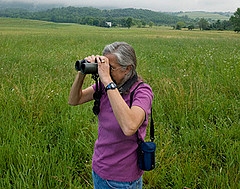Aug. 25 webinar to examine effect of Marcellus gas activity on habitat
http://live.psu.edu/story/54504#nw69
Thursday, August 11, 2011
UNIVERSITY PARK, Pa. — As the Marcellus natural-gas boom has reverberated around Pennsylvania, residents and scientists alike have expressed concern about the impact extensive drilling and associated infrastructure development is having on wildlife habitat.
Wildlife managers and protectors are worried about forest fragmentation, the advance of invasive plant species and the effect the Marcellus play is having on activities such as hunting, fishing, bird watching and wildlife viewing.
There have been more than 2,350 wells drilled into the deep Marcellus formation under Pennsylvania in the last few years, primarily in the southwest, northeast and northcentral regions.
A Web-based seminar presented by Penn State Extension will offer a look at the latest information on the subject. Titled, “A Research Update on the Effects of Marcellus Shale Drilling on Wildlife Habitat,” the one-hour session will take place at 1 p.m. on Aug. 25.
“The webinar will cover landscape and habitat changes associated with Marcellus Shale exploration and development, and how that may affect Pennsylvania wildlife and wildlife-associated recreation,” said presenter Margaret Brittingham, professor of wildlife resources in the College of Agricultural Sciences.
“I will discuss research we recently have completed on shallow wells and give an overview of our current research project, which is looking at the effects of Marcellus Shale gas exploration and development on wildlife habitat in general and forest songbirds in particular.”
Pennsylvania contains internationally important breeding habitat for a number of neotropical migrant songbirds that — if degraded — would affect world populations, Brittingham noted. And much of the extensive gas development is occurring in the state’s northern tier, where some of the densest forests in North America provide ecologically vital bird habitat.
However, that new research is in its early phase, Brittingham explained. “We currently are collecting baseline data and determining whether there are any detectable changes at this stage of development,” she said.
“I will conclude the webinar by discussing habitat-restoration needs, guidelines and opportunities, both for minimizing potential problems and enhancing habitat quality.”
The webinar is part of a series of online workshops addressing opportunities and challenges related to the state’s Marcellus Shale gas boom. Information about how to register for the session is available on the webinar page of Penn State Extension’s natural-gas website at http://extension.psu.edu/naturalgas/webinars.
A webinar at 1 p.m. on Sept. 15 will focus on current legal issues in shale-gas development.
Previous webinars, publications and information on topics such as air pollution from gas development; the gas boom’s effect on landfills; water use and quality; zoning; gas-leasing considerations for landowners; implications for local communities; and gas pipelines and right-of-way issues also are available on the Penn State Extension natural-gas website (http://extension.psu.edu/naturalgas).
For more information about the webinar, contact John Turack, extension educator in Westmoreland County, at 724-837-1402 or by email at jdt15@psu.edu.


Thanks for sharing your info. I truly appreciate your efforts and I will be waiting for your further write ups thanks once again.